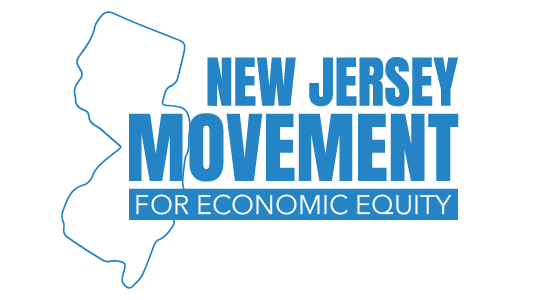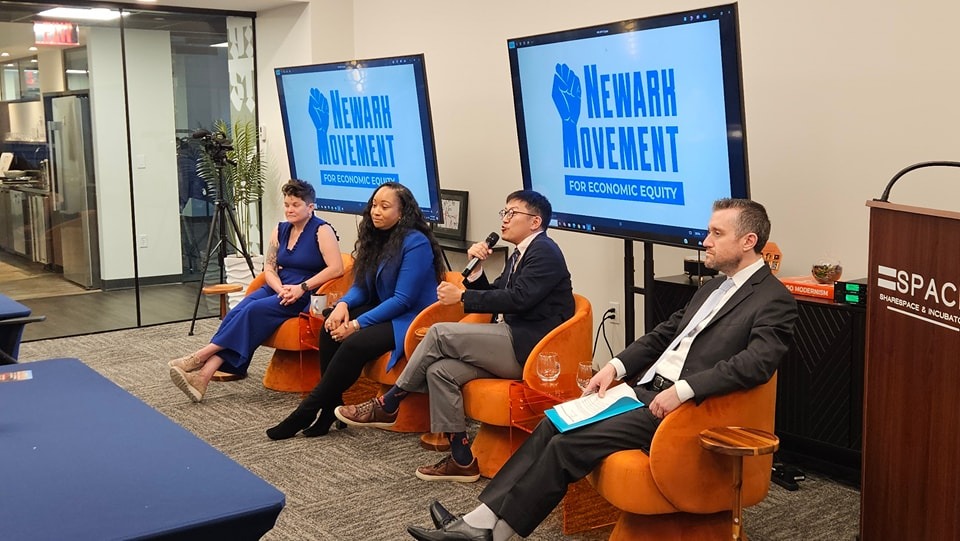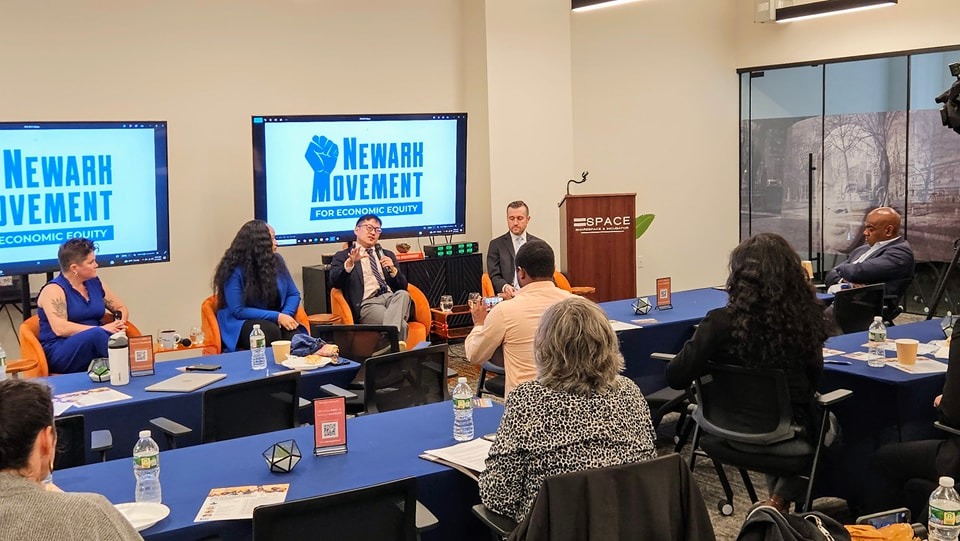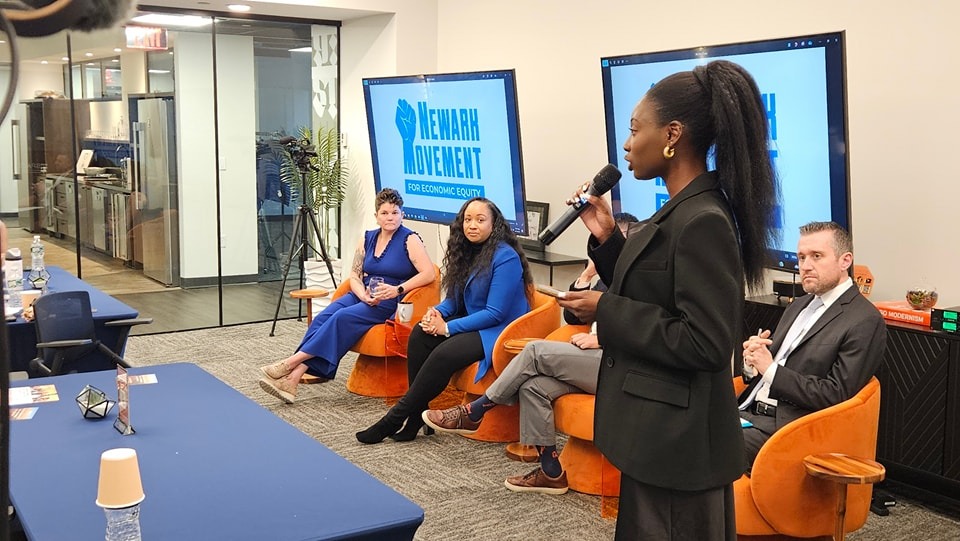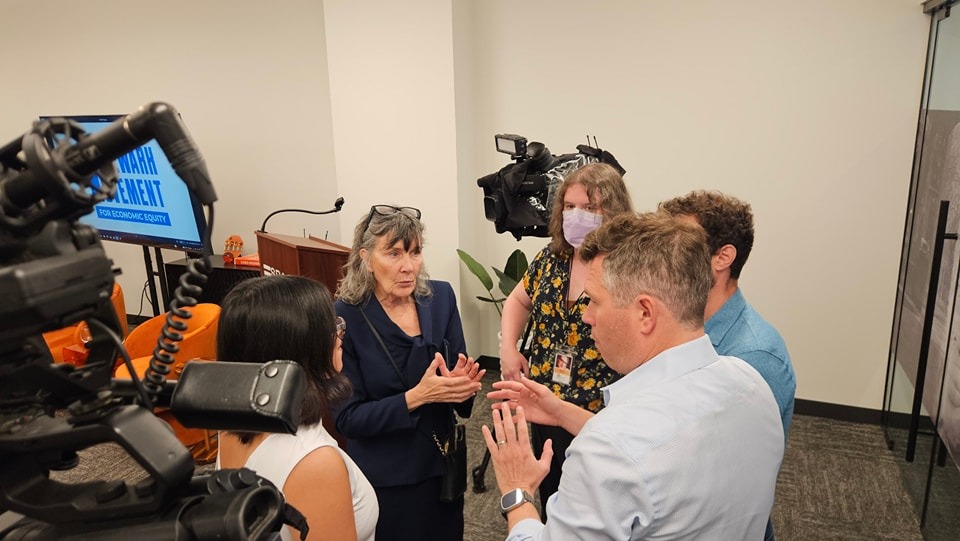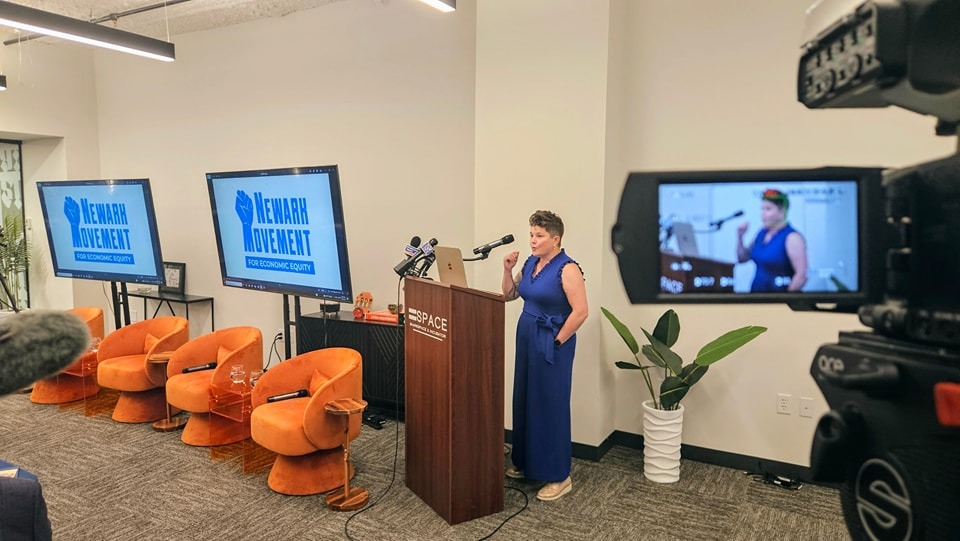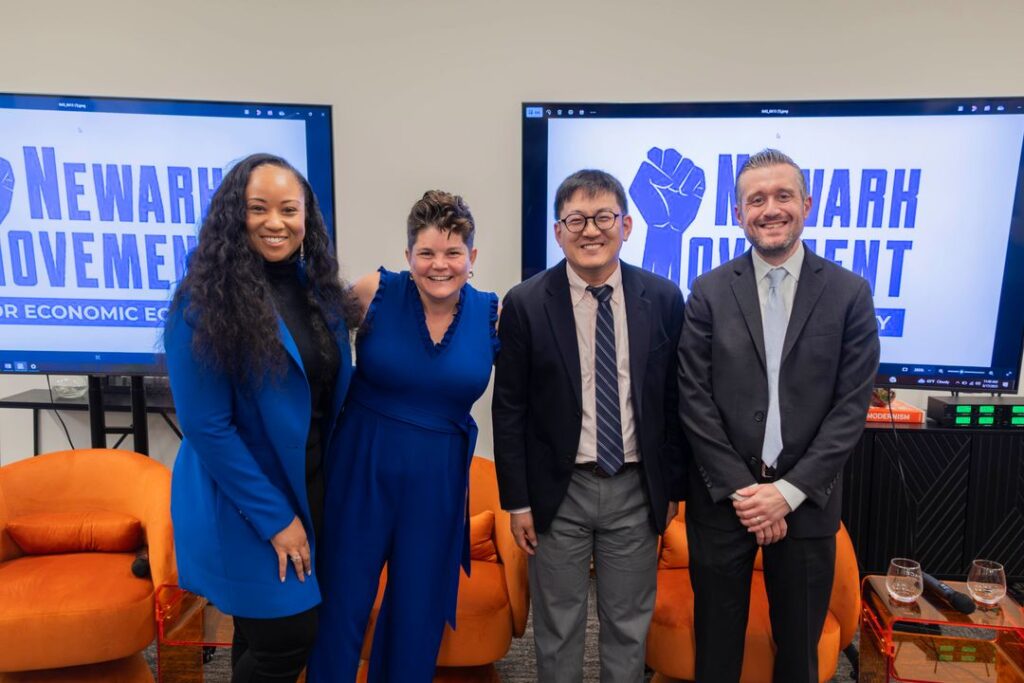On June 17, 2025, Mayor Ras J. Baraka, Newark Philanthropic Liaison Kevin Callaghan, representatives of the Newark Movement for Economic Equity (NMEE), and other dignitaries announced the results of the City of Newark’s Guaranteed Income Pilot program at a press conference held at Equal Space in downtown Newark.
Dr. Amy Castro, Co-Founder of the Center for Guaranteed Income Research at the University of Pennsylvania, presented a summary of independent data from the program showing that its participants, 400 randomly-selected low-income Newark residents, saw improvements in financial resilience, housing and food security, mental health, and parent-child time.
”“Poverty is the result of failed policy, period. We structured the NMEE to gather scientific data about the best format for cash interventions, so that state legislators could adopt a proven model. Now that we have results, it’s time for action. Ending poverty will make our neighborhoods safer, our cities healthier and our state more resilient.
Ras J. BarakaMayor, City of Newark, New Jersey
Panelists also included key program partners, Kaleena Berryman, Executive Director – Newark Youth Career Pathways, and Peter Chen of New Jersey Policy Perspective.
Launched by Mayor Baraka in the fall of 2021, NMEE provided cash disbursements to the chosen residents for a period of two years. NMEE was designed to examine the impact of recurring payments and lump-sum payments, exploring the unique outcomes of each to understand how to optimally structure unconditional cash payments.
”Again, Newark is leading the way in making concrete recommendations on how to improve the financial resilience of New Jersey residents. The Newark Movement for Economic Equity would not be possible without a public-private collaboration, because in our collaboration we show our strength.
Kevin CallaghanNewark Philanthropic Liaison
To qualify, recipients had to be residents of Newark, have an income below 200 percent of the federal poverty line, and have been negatively impacted by the COVID-19 pandemic. The City of Newark partnered with independent researchers to design a randomized controlled trial (RCT) that included three groups.
Of the 400 people randomly selected to receive guaranteed income, 200 were given $250 twice a month (recurring payments group), and 200 received $3,000 twice per year (lump-sum group); both groups received payments for two years. A control group of 478 people, who did not receive any payments, was also randomly selected from the pool of qualified applicants. Key takeaways include:
• Financial Resilience: Six months into the pilot, people receiving recurring payments demonstrated reduced income volatility, and by 18 months, they showed an increased ability to handle a $400 emergency expense, compared to the control group. People receiving lump-sum payments were better able to handle a $400 emergency expense at six, 12, and 18 months, compared to the control group.
• Parenting: Both recurring and lump sum recipients were able to spend more quality time with their children, and their children were more likely to improve their grades at school or enroll in AP courses, compared to children of parents in the control group.
• Housing Security: People receiving recurring payments were better able to maintain stable housing than the control group. Meanwhile, those receiving lump-sum payments were able to handle big transitions, like moving. The rate of homelessness for recipients of recurring payments dropped from 3% to 0%, while for the control group, those rates remained between 2-3% throughout the study period.
• Food Security: Recipients of recurring payments reported significantly improved food security six months after the first disbursement and continued to show meaningful improvement throughout the pilot.
• Mental Health: Recipients of recurring payments demonstrated significant improvements in their stress levels at six months and reported less depression and anxiety during the first 18 months of the pilot compared to the control group.
NMEE is affiliated with Mayors for a Guaranteed Income, a coalition of more than 180 mayors and growing. Across the nation, cities that have participated in this initiative have shown greater financial stability, increased employment, more parent-child time, and better levels of overall well-being, among other findings.
In Newark, the pilot was funded by Mayors for a Guaranteed Income, the Geraldine R. Dodge Foundation, the MCJ Amelior Foundation, Prudential Foundation, Robert Wood Johnson Foundation, the Stadler Family Charitable Foundation, and the Victoria Foundation.
